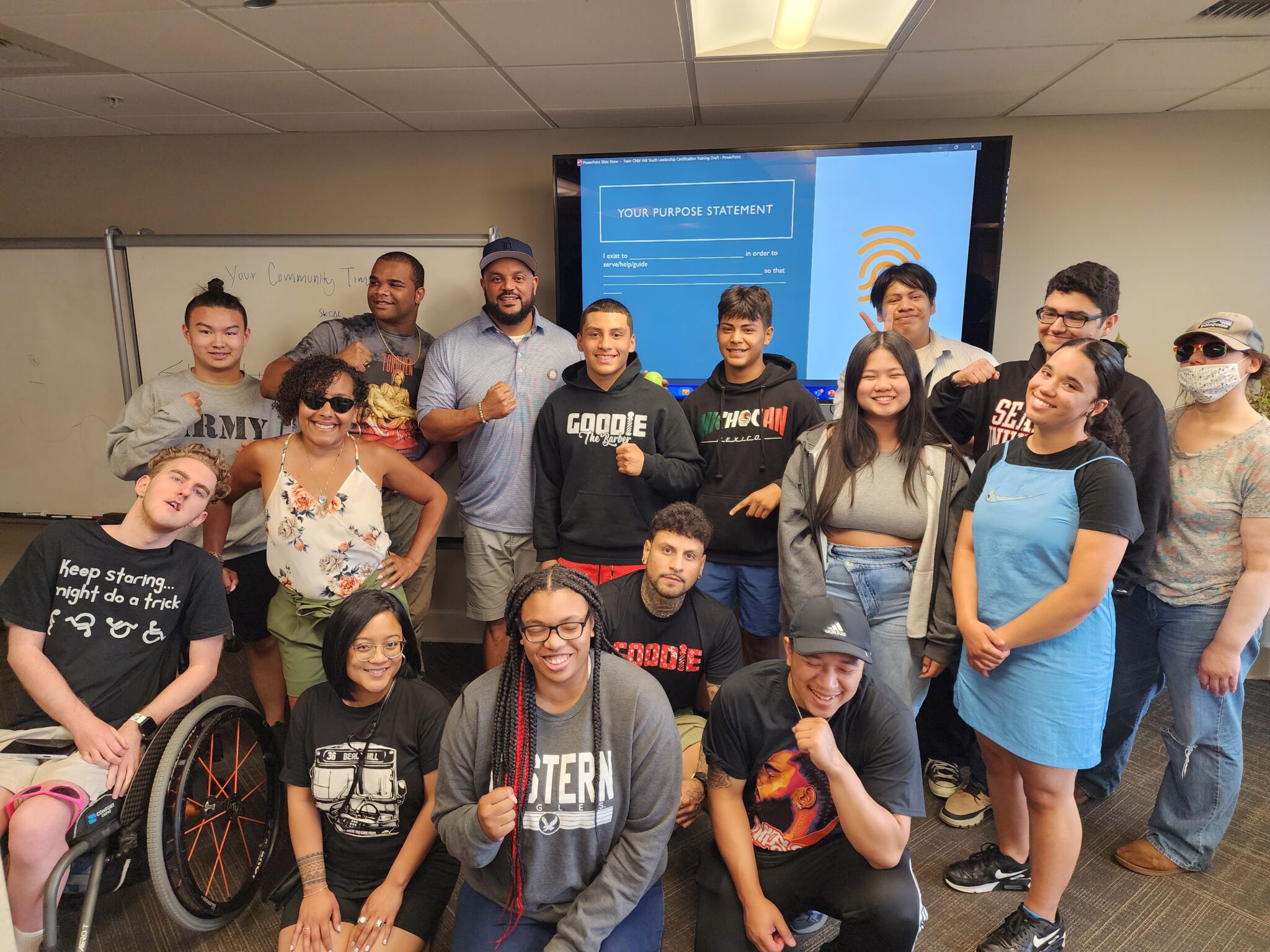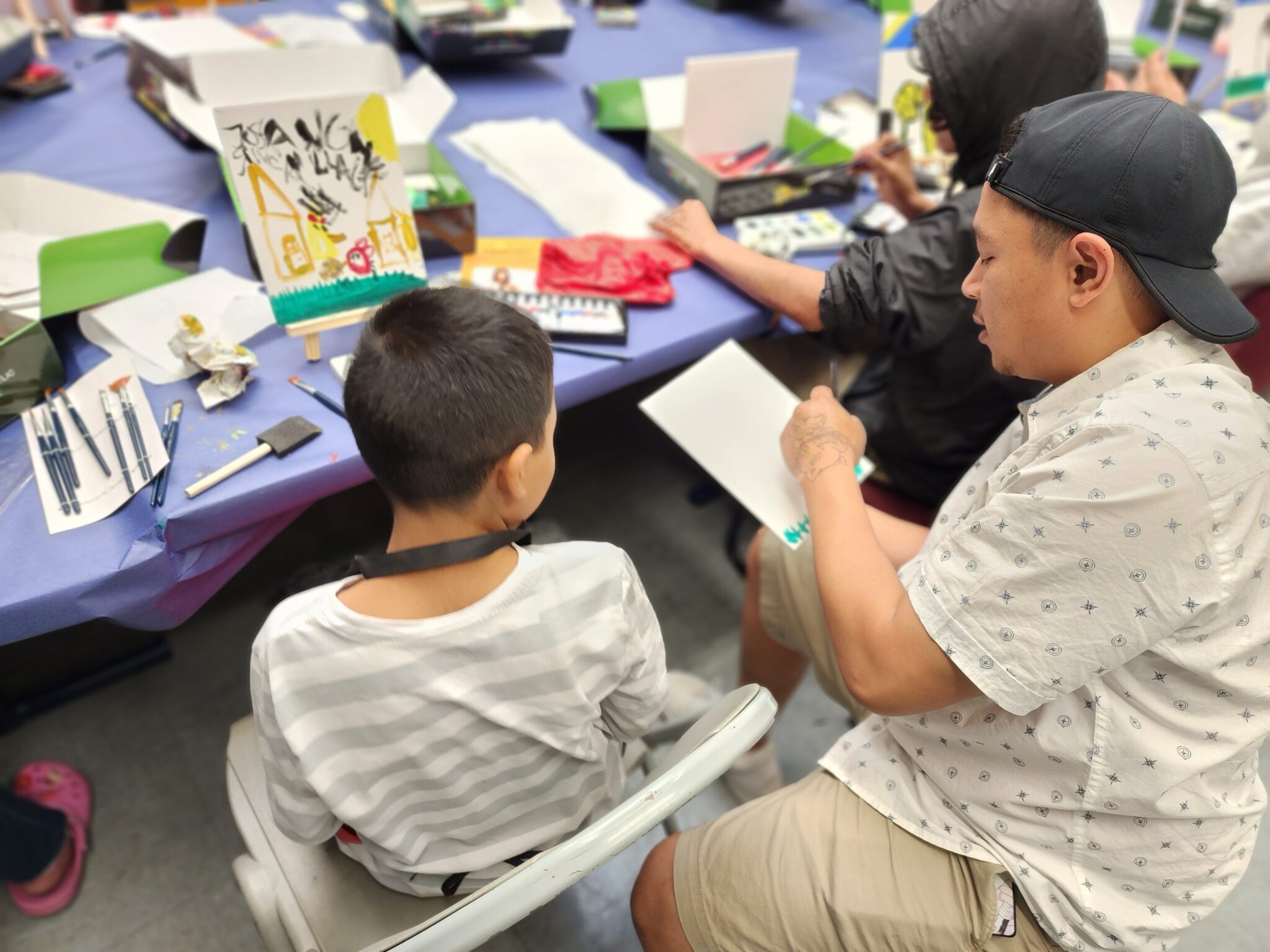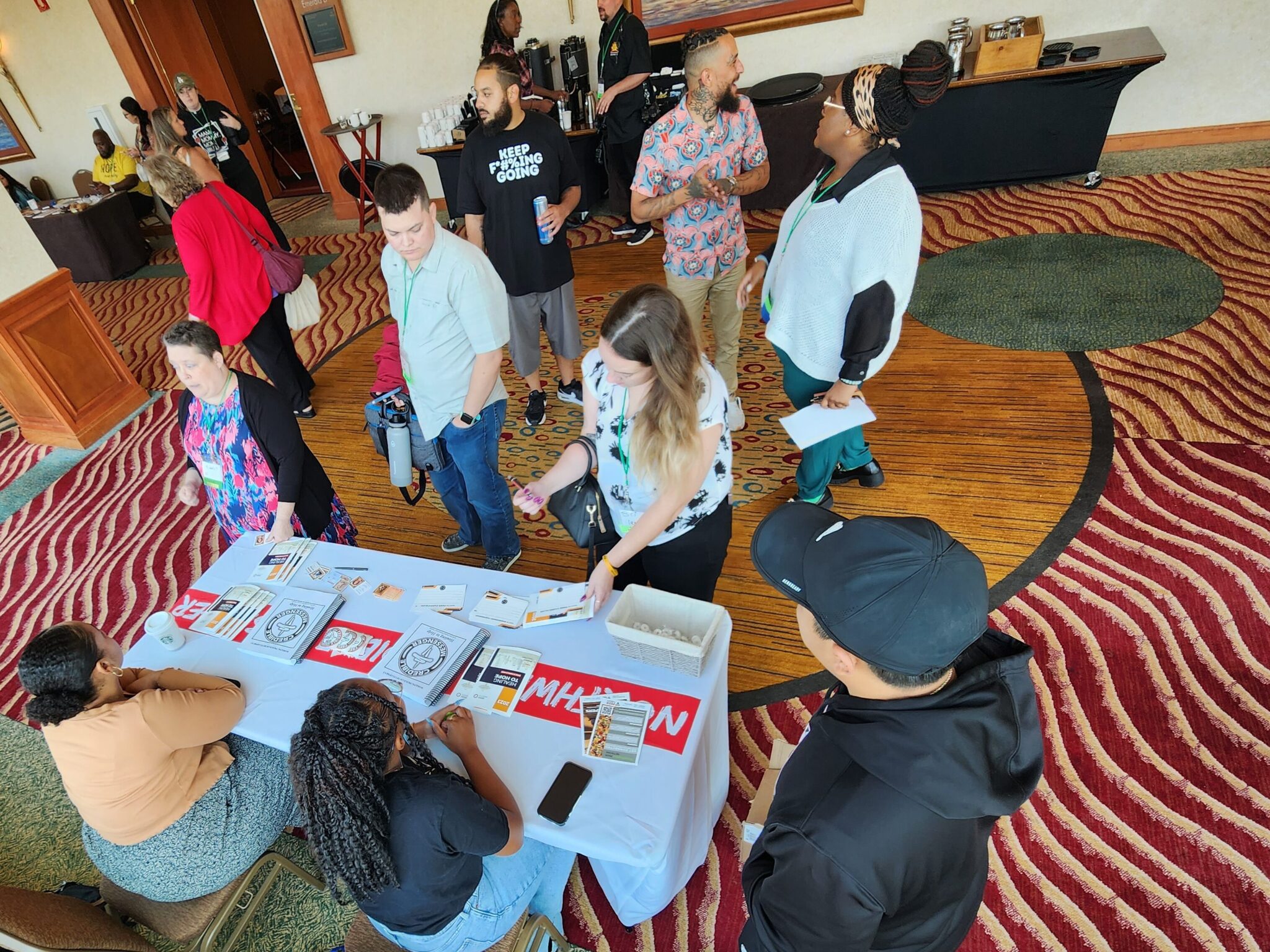
Community Corner highlights the work of Seattle Human Services’ community partners in their own words. Our goal is to gather stories and photos that illustrate their amazing work on behalf of the people of Seattle.

What is the role your organization fulfills in your community?
Northwest Credible Messenger (NWCM) strives to advance healing, safety, and support for participants and partners alike. Since beginning our work in 2016, we have been laser-focused on our mantra that There is POWER in UNITY, building a consortium of providers statewide to advance our goals collectively.
We have been the statewide Gang Intervention technical assistance provider with the Department of Children, Youth, and Families (DCYF) since 2019, impacting gang intervention work across Washington. Our role has been to implement and support the development of Credible Messenger programming statewide. In our work we have seen the profound impact on the participants we serve but have also observed a need for healing with many of the partners we support.
We believe that sustainable impact with youth starts with the adults that mentor and support them. We first took on Healing Centered Engagement as a tool to do the mirror work with ourselves initially. And now we utilize the tool in our work and have since sponsored every partner to become certified as Healing Centered Practitioners. Lasting impact begins with our own healing and behavioral health, and our work over the years has grown tremendously into several areas of impact.
How does your partnership with Seattle Human Services (HSD) assist you in that role?
Currently, HSD supports our Youth Young Adult program which provides culturally responsive peer support services, counseling, and groups focused on healing and overall wellbeing for our Youth and Young Adult BIPOC (Black, Indigenous, and People of Color) community. This program provides on-site, peer-based, one-on-one counseling and Credible Messenger support groups focused on overall health and wellness including meditation, mindfulness, and art therapy.
HSD also supports our Supportive Re-entry program which provides culturally responsive reentry services for incarcerated and formerly incarcerated individuals. This program includes teaching tools for developing meaningful relationships, one-to-one counseling, group sessions, and workforce readiness skills.
Our Partnership with HSD assists us by supporting our efforts to increase access to resources in underserved communities. This work has also been a resource for us to build partnerships to other new and emerging organizations doing similar work, giving them access to our training and capacity building.
What is your organization’s origin story?
Northwest Credible Messenger was founded in response to juvenile homicides in 2016. Our organization was formed to provide solutions and evoke conversations that would lead to change based on the needs we were seeing within our community.
We started with one juvenile court mentorship program, expanding countywide, and slowly growing into new communities, schools, and institutions. We eventually became a statewide program and process for other leaders to advance their professional development and to access funding and support for advancing community-based and -driven services, resources, and supports.
We believe relationships produce results, and that being able to share what has worked for us in our Seattle and King County regional programs is translatable to other regions statewide with some adaptation. Our goal has been to provide the support and resources we can locally, and to other regions, continuing our work collectively to create sustainable access to funding sources in under-served communities.
How has your organization grown or developed in recent years?
From being a single juvenile court mentorship program, to expanding our mentorship program countywide, to developing a statewide Gang Intervention Model, we have grown in various ways in response to the needs we see in our communities.
In response to the rise in intimate partner violence with Black and Brown youth during the pandemic we worked alongside the Institute for Innovation in Prosecution to advance our Healthy Masculinity program to which it was shared with 17 jurisdictions nationally.
Seeing a need for healing in our work and communities we began a cohort of Healing Centered Engagement training with our team and a select group of partners. Working together to support one another we saw a positive impact and began to build our own model. This led us to lean into the Peer space, eventually advancing our work enough to be selected as the Capacity Building organization to help the Washington State Healthcare Authority to launch their BIPOC Seed Grant model. We were tasked with building funding opportunities to develop and support BIPOC Peer Organizations statewide to advance their work and receive capacity building from NWCM.
Over the years we have developed and provided Re-entry services, Gang Intervention, Healthy Masculinity programming, and Residential Services in Juvenile Rehabilitation facilities. During the last legislative session, our Politicizing our Youth Campaign statewide team was able to help our consortium partners access funding to advance their work statewide.
The NWCM Model has made strides in how we work with Community Leaders, and how we engage young people. We have advanced our model and have trained many community leaders and have grown our impact in such a way that we are expecting to work with a state department, through our legislative efforts, to advance capacity building to three additional organizations statewide over the course of two years. This partnership will increase a model for positive community support.
Why is it important for HSD and City of Seattle taxpayers to invest in community-led work?

We need a menu of services, resources, and support; and each approach is a necessary approach to the ecosystem of change in our communities. Our model is just a part of the menu, and so are the many others that are present in our communities.
We have shifted our intervention model to be a long term, more structured, culturally responsive, behavioral health response to intervention. Others may be incident responders, or have other valuable approaches, but together we can break down silos and provide a continuum of services for our communities to really thrive.
Collaboration is not always easy, but we do need city stakeholders and taxpayers to see the continuum and partnership possibilities—and to fund them. A true measure of our success should be role modeling the work we are encouraging young people to do. We can’t spell community without unity, and our greatest asset is the POWER in UNITY.
When organizations develop a successful method to intervention and support, we should always be mindful of the need for a menu of services. We should assist those funded and successful organizations to have a process to access funds and resources to help new and emerging groups to grow.
How do your organization’s programs and services help to reduce the disparities experienced by people of color living in our region?
As the Washington state Ambassadors for the national Credible Messengers Mentoring Movement, we focus on cultivating racial justice through proactive reinforcement of policies, practices, attitudes, and actions.
The NWCM Model focuses on increasing equitable access to treatment and opportunities for Black and Brown leaders and young people. We accomplish this by strengthening our impacted communities through a collective process, where their voices are a part of the solutions they wish to see in their communities.
Capacity Building is a huge portion of our power building strategy. We teach a Policy 101 series to help advance regional acumen in the legislature and teach others that we can expand our policy advocacy efforts collaboratively by reducing barriers regionally.
What’s one example of how an HSD-funded program or service made a difference in the life of one of your community members?
HSD’s funding has allowed NWCM the opportunity to provide a young person in re-entry, facing homelessness and behavioral health needs, with wrap around support. We’ve worked closely with his therapist, court advocate, and other community-based supports. Through case consultations, resource navigation and peer support he has since joined a GED program, accessed stable housing, and is currently employed. We look forward to continuing to support him and others facing similar barriers.
What motivates your staff or keeps you going?

Our foundational principles were formed in peer- and healing-centered practices that guide how we engage community and how we value our internal team. We are proudly made up of individuals with lived experience, formerly incarcerated, and diverse cultural and educational backgrounds. These experiences, perspectives, and talents foster an inclusive workplace that empowers us to work collaboratively in addressing the needs of community.
Our staff is motivated by the power of possibilities. We have seen the impossible become possible through the impacts we have been able to make in communities statewide. We are a workplace that values and honors our staff’s time and dedication to the programs and projects they contribute too. While we still have a long way to go, our staff believes in the Power in Unity, which empowers an individual’s strengths resulting in a collective vision to bridge communities.